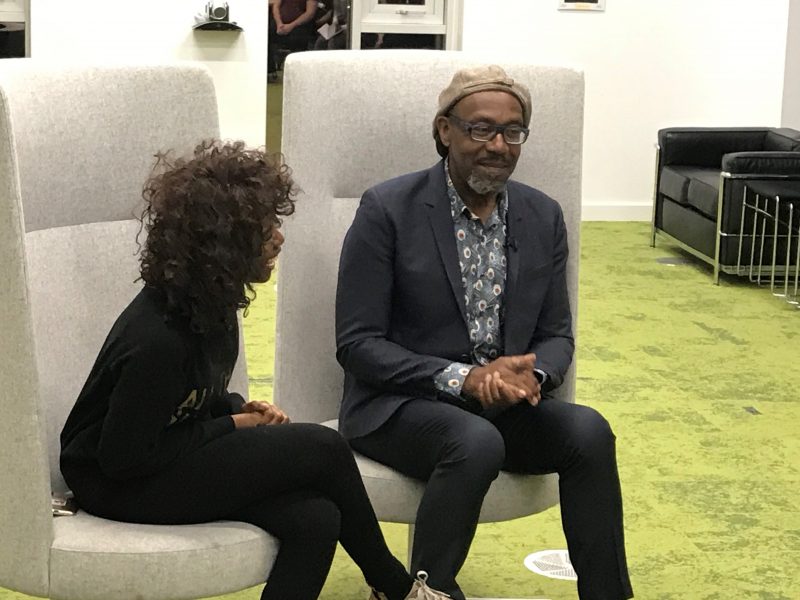Co-written by Abigail Nruah and Anisah Vasta

Recently, Birmingham City University hosted an evening with Sir Lenny Henry, celebrating his role as the institution’s Chancellor. The event ‘Sir Lenny Henry in Conversation’ was held at the Birmingham Royal Conservatoire, and formed part of the university’s public lecture series ‘CityTalks’.
The event consisted of a candid interview led by the author and broadcaster June Sarpong MBE, who asked about his personal journey as a comedian and the future he envisages for the media industry.
Students at Birmingham City University School of Media were given the exclusive chance to ask questions of Sir Lenny Henry in a Q&A session ahead of the public event.

Sir Lenny candidly discussed his career as an actor, writer, comedian and activist and talked about the need for diversity and inclusion within the media industry. Meanwhile June Sarpong MBE talked about her career as a TV presenter and recalled the best moments, including Nelson Mandela’s 90th birthday party.

Why did you see comedy as the best career route for yourself?
“In my entire school career, I was always one of the few black people in the school. My mother told me that the way to advance in the British society is to integrate. So, I was told to integrate with white people, and my way of doing that was to be funny.
“Often when I was receiving racial abuse from peers I realised that I couldn’t fight any longer, so I thought that maybe jokes were better; so if someone made a racist joke about me I will say something funny back and the people around will laugh – and suddenly I had all these people by my side.
“Humour for me brought down barriers and I thought that if that was what humour could do then it was very powerful and that’s why I chose comedy.”

Were you intimidated to go on national TV when there were not many black or minority ethnic people in media?
“When I was a kid I saw black people on TV, but they were never from Britain. There were a few in drama, but even in drama black people… we were always the subject matter, but never the people that went to solve the problem: we were the problem.
“As they say, ‘You can’t be what you can’t see’.
“I always thought that this was not a career that I can do because I didn’t see anyone like me from Britain doing this, and unless I was an American I was not going to get near to where I wanted to be.
“But then my friends encouraged me to get up on stage at a local discotheque, and I would have never done it if they didn’t say that I could do it and I was funny. I then was spotted by a DJ who said ‘You should be on television’, and that’s how I broke through. And suddenly I was on TV doing a comedy act in front of 15,000 people who have never seen a black impressionist before, from Britain. I was 16.”
Did reaching fame at a very young age change you?
“I think it will change you. One of the things it did is that it took me out from my comfort zone: I already worked in Dudley, Wolverhampton, sometimes Birmingham, but suddenly I was in Leicester, Cornwall, Derby… everyone wanted to see the black kid that was doing impressions on TV.
“What it did was to make me step up my game because before that time I was only doing 5 to 10 minutes, but customers were paying me to do half and hour, 45 minutes, and I had to learn very quickly and generate more material to make people laugh. I had to learn and to collaborate.”
Why do you think that in the 21st century we are still fighting for inclusion?
“I am a diversity activist and all I know is that there is inequality and there is a lack, and somebody should speak about it. Everybody should speak about it.
“I started in 1975, and for the first 35 years of my career I never had a meeting with anybody that looked like me. For 35 years, I was always the only black person in the room, and I always had to translate or explain my culture to a predominantly white group of people… and that can affect you.
“A white steering group mandated all of my humor, I had white scriptwriters, white producers, white associates who helped me make comedy that was acceptable to a mainstream audience.
“Today we see some changes but it’s not enough, the numbers of diversity and inclusion in media organisations in the country are still very poor, the numbers from when I started to now haven’t changed much.”


Leave a comment